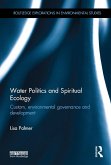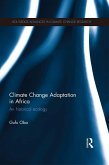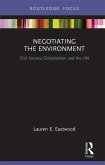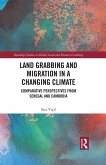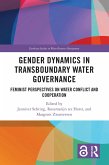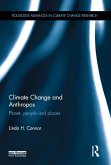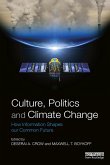The culmination of a decade of ethnographic research in Timor Leste, this book gives a critical account of the complex social and ecological specificities of a water-focused society in one of the world's newest nations. Comparatively framed by international examples from Asia, South America and Africa that reveal the need to incorporate and foreground cultural diversity in water governance, it provides deep insight into the global challenge of combining customary and modern water governance regimes. In doing so it addresses a need for sustained critical ecological inquiry into the social issues of water governance.
Focusing on the eastern region of Timor Leste, the book explores local uses, beliefs and rituals associated with water. It identifies the ritual ecological practices, contexts and scales through which the use, negotiation over and sharing of water occurs and its influence on the entire sociocultural system. Building on these findings, the book proposes effective conceptual and methodological tools for advancing community engagement and draws out lessons for more integrated and sustainable water governance approaches that can be applied elsewhere.
This book will be of great interest to students and researchers in environmental studies, environmental policy and governance.
Dieser Download kann aus rechtlichen Gründen nur mit Rechnungsadresse in A, B, BG, CY, CZ, D, DK, EW, E, FIN, F, GR, HR, H, IRL, I, LT, L, LR, M, NL, PL, P, R, S, SLO, SK ausgeliefert werden.
Hinweis: Dieser Artikel kann nur an eine deutsche Lieferadresse ausgeliefert werden.
"Palmer's extraordinary account of the ritual ecology of water in Timor Leste alerts us to a worldview that accords water a powerful agency and influence on not just the natural world, but also the human and supranatural. This book is a first in its intellectual engagement with a matter of global importance - human relations with water - and a welcome contribution to anthropology in complex postcolonial conditions."-Marcia Langton, Chair of Australian Indigenous Studies, The University of Melbourne
"With great clarity and style, Palmer uncovers an unsuspected universe of intricate connections between society and nature created by the flow of water on the island of Timor. Like all great ethnographies, this book is a revelation."- J. Stephen Lansing, Asian School of the Environment, Nanyang Technological University, Singapore
"This book is about more than cultural conceptions of water in Timor Leste. It's an incitement to recognise the parochialism of the Western paradigm of 'environmental management'. Lisa Palmer's ethnography suggests it might not be too late to learn from other ways of interacting with what Westerners call 'nature'." -Noel Castree, University of Wollongong, Australia
"This tour de force is an outstanding addition to the theory and ethnography of water as a material substance and as a component of social, ritual, and cosmological relationships; its geographical frame of reference is the small nation-state of Timor Leste but the lessons it teaches apply to the developing world in general.
Based upon intensive and extensive fieldwork, complemented by widely-ranging sources, Water Politics and Spiritual Ecology is a major addition to the published ethnography of Timor Leste and will appeal to scholars and policy-makers interested in the social, ritual, and mythological ramifications of water in that post-colonial nation-state.
This superb study of water, kinship, affinity, ritual, and narrative seamlessly brings together Timor Leste's past and present and provides an original perspective on this post-colonial nation-state. It is indispensable reading for scholars and policy-makers concerned with the problematic relationship between local communities and national policies." -David Hicks, Professor of Anthropology at Stony Brook University, U.S.A., and Life member of Clare Hall, University of Cambridge, U.K.
"In Water Politics and Spiritual Ecology Lisa Palmer helps us to appreciate the agency of gushing waters inhabiting the underworld of East Timor's drylands. She alerts us to an underground economy of debt, reciprocity, connection and disconnection that the sacred springs of the Baucau Plateau continue to mobilize. We learn how past and present, upland and coastal people, pre-colonial, colonial and post-colonial modes of water governance are entangled in a lively mesh of relationality. Most importantly, we are given tantalizing insights into living together with the non-human world differently." -J.K. Gibson-Graham, Institute for Culture and Society, University of Western Sydney, Australia



